-
About
- About Listly
- Community & Support
- Howto
- Chrome Extension
- Bookmarklet
- WordPress Plugin
- Listly Premium
- Privacy
- Terms
- DMCA Copyright
- © 2010-2025 Boomy Labs

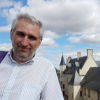 Hans De Keulenaer
Hans De Keulenaer
Listly by Hans De Keulenaer
In Belgium, distances are ridiculously short, and the next millenium town is never more than a few tens of km away.
Source: http://discoveringbelgium.blogspot.com
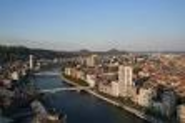
Baroque city, with a rich heritage developed during 7 centuries as head of a principality. Important city during the 19th century industrial revolution. Currently the largest city in Wallonia.
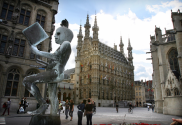
Another medieval city, hosting since 1425 a catholic university which meanwhile has become one of the oldest in Europe, but also one of the most innovative.

At the end of November 2008, National Geographic published a top 109 of the most authentic destinations worldwide. The historic city centre of Ghent ranked third!

Antwerp calls out to visitors and begs to be explored, together with a guide or at your own pace, the choice is yours. Take in the atmosphere either by tram, boat, horse and carriage, on foot or by bike... just get there!!
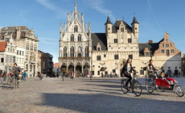
A relatively unknown city, hosting 4 UNESCO World Heritage sites.
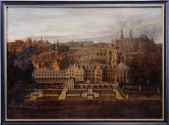
Medieval city with over a thousand years of history. Main residence of Charles V, former capital of the Spanish Netherlands and currently capital of Europe and seat of NATO.
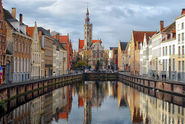
A town so unique that its entire historic centre was classified as part of UNESCO's World Heritage.

Atuatuca Tungrorum, the ancient name of Tongeren, was the administrative chief place of the district of the people (civitas) der Tungri in the Roman ages. These Tungri formed an administrative federation of a few indigenous tribes in the time of emperor Augustus (27 BC – 14 AD) . In the decades before, they rebelled against the Roman invasion army of Julius Caesar.

The Crypt with the remains of Saint Hermes is unique in Belgium and beyond.
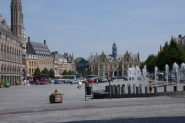
Visit Flanders Fields in Ypres and never forget the Great War. Explore also Ypres' medieval past with its famous cloth hall and 17th century Vauban ramparts.
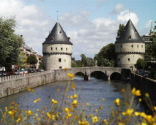
The city of Innovation, Creation and Design. Just to give a few examples: the Tack Tower, the Skatebowl and the Groeninge-bridge

Small, picturesque city with over 1000 years of history. The birth town of Adolphe Sax, inventor of the saxophone.
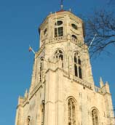
Charming, Burgundian, diverse, surprising, historic, romantic. These are just a few of the adjectives to begin to describe Lier.

Official website of the capital of Wallonia. Short description of the city and its various aspects. Links to the main regional actors.
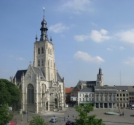
Tienen, the Sugar Town, is situated in the heart of Belgium, the largest town of the Hageland, measuring 7.179 ha. As well as from Grimde, Overlaar and Oorbeek it also consists of the former municipalities of Bost, Goetsenhoven, Hakendover, Kumtich and Vissenaken.

Bouillon and its environs enjoy a fine architectural and archaeological heritage, with the Chateau Fort of Bouillon as the most obviously outstanding feature. But Bertrix, Paliseul and indeed Bouillon itself also possess many other houses, structures and religious works, illustrative of a rich past.

2000 Year of History - One of the oldest cities in a country where the youngest city dates back to the 17th century. City of the Merovingian Kings Clotharius, Meroveus, Childeric and Clovis.

Saint Trudo was a Frankish noble who built a church and a convent around 650. The small community became a thriving abbey which would experience the ups and downs of the city till the end of the eighteenth century.
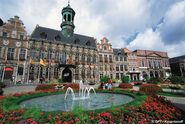
The real story of Mons starts in the seventh century, however, when Waudru decides to devote his life to God. She retires to an oratory built on the hill that will house later the city of Mons.

Dating from the end of the 12th century, a relatively young city, which currently acts as the capital of Belgian Limburg, but probably better known for its tradition in jenever production (a kind of gin).

Monasteries, castles, musea, ... Almost too much to handle for such a tiny town.
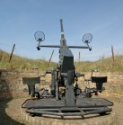
From the Atlantik Wall open air museum to the fish market, Ostend offers something for everyone.

Binche is located in the « Région du Centre » in the Province of Hainaut, between the cities of Mons and Charleroi. Binche covers an area of 6.063 hectares and is composed of Binche, Bray, Epinois, Leval-Trahegnies, Péronnes-lez-Binche, Ressaix and Waudrez. It currently counts 32.750 inhabitants on its territory.
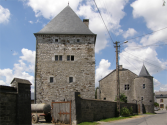
Situated at the junction of the Condroz, Famenne, and Ardennes regions, the District of Durbuy is a land of many pleasures, a region that radiates far beyond its frontiers. After all, in 2007 Durbuy was recognized by the European Commission as a “Rural destination of excellence”, along with nine other European towns.

Provincial town between Leuven and Diest, celebrating its 800th anniversary this year.
